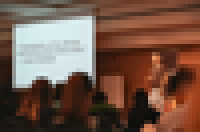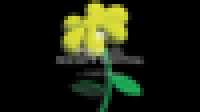State of the Logos Network: April 2025
Your roundup of recent developments from the Logos ecosystem
Logos


Cultivating community
Community is at the heart of everything we do at Logos because a committed, value-aligned community is essential to our vision of building a network state. This year, we’re doubling down on creating a truly open-source community with several initiatives described below and many more that we’ll reveal soon.
Open source is not only about having transparent code. It means involving the community in all aspects of Logos – from development to advocacy. We face an uphill battle, and we cannot succeed without your help.
Future State of the Logos Network editions will contain more details on how you can support our mission in more practical ways, but for now, join the community Discord, introduce yourself, get involved in the discussions and share what you’re working on, or even just post a few memes.
Events
IFT annual meetup
Contributors from across the Institute of Free Technology met in Croatia at the end of April to strategise and collaborate. The time spent together deepened connections, aligned our work, and gave a rare opportunity to advance cross-project initiatives, such as Qaku and decentralising OpChan.
At the event, we saw a preview of Logos Core, an open modular platform architecture for the Logos ecosystem that will allow applications to easily import and start building on the technology stack. Logos projects also had the opportunity to showcase the significant strides they had made in protocol development. These presentations included a live demo of an early testnet version of the Nomos blockchain.
Expect to see the fruits of this collaboration in future State of the Logos Network updates.


Zuitzerland
Immediately after the IFT meetup, Logos representatives headed straight to Zuitzerland, a pop-up city initiative hosted by contributors from Zuzalu in Switzerland. The event is an opportunity for Logos to expand our community by meeting fellow parallel society builders in person, strengthening existing bonds and forging new ones.
Parallel Society Festival
Planning for next year’s Parallel Society Festival is ongoing. The event, which debuted as Parallel Society Congress last year, provides a fresh take on the conference format with our coalition members co-curating a uniquely cultural experience. Alongside the usual presentations, panels, and workshops, you can expect live music from local and international talent, art exhibitions, theatre, and much more. We’re calling it an (un)conference because that’s exactly what it is!
We’ll reveal more about the next Parallel Society Festival, including the location, very soon – watch this space.


Logos Cells
Logos Cells are self-organising local groups that meet regularly to address community issues with a hands-on approach. We’re currently planning a prototype Cell to determine optimum organisational structures. The learnings from this initiative will be used to provide documentation on best practices, which should guide the Logos community when establishing their own Cells to tackle local problems in a bottom-up, grassroots fashion.
By building relationships within themselves and their communities around our key values and issues, Cells will form an on-the-ground power base for the Logos network state. Stay tuned for more information on Logos Cells and how you can get involved.
Learning
April’s X Spaces
Our regular X Spaces give the Logos community a forum to discuss ideas surrounding the post-state-governance movement and the technologies needed to bring them to life. The conversations feature guests from allied network state projects and run every Thursday.
Here's what we covered in April:
- Access, Exit, and Exile: Engaging with the Cyberstate (with Veronica Schenk of Zuzalu)
- Economics and Politics of the Cyberstate (with Michel Bauwens of P2P Foundation)
- Meaning of the Network State
- Are Nation States Obsolete? (with author and philosopher Peter Ludlow)
Logos co-founder and co-author of Farewell to Westphalia, Jarrad Hope, also joined Web3 Privacy Now on a recent X Space to discuss the book’s ideas.
Learn more about Farewell to Westphalia and sign up for publishing updates.
Operators
Waku contributors are working hard to integrate the privacy-preserving communications protocols into OpChan, showcasing Logos technologies and bringing the platform more in line with our principles of censorship resistance and community self-sovereignty. More information about these efforts, including a proof-of-concept implementation, will be coming very soon.
Community shoutouts
April saw several Logos contributors and community members go above and beyond to help forward the Logos mission and strengthen the community. Shout out to:
- Matt from Quai Network for bringing pertinent questions about the relationship between the state and its citizens to Peter’s X Space.
- Vaclav for having a solution to just about any problem (and serving up the best coffee!)
- Chair for his constant support of Logos community-building initiatives.
- Lou and Alisher for bringing the vibes and tunes to Croatia.
Want your own community shoutout? Join Logos, do something extraordinary to advance our cause, and tell us about it in Discord!
Technology development
Waku
Last month, the Waku team conducted simulations exploring the implementation of libp2p mix into the Waku protocol stack, beginning with the lightpush protocol. Learn more.
A new version of js-waku was released, which includes improvements to the Health Indicator, a new RLN credentials manager without Zerokit, and more. Learn more.
The Waku team met in Croatia to align their collaboration with Codex and Nomos and shared an initial roadmap for a Private Chat SDK API to support scalable, privacy-focused messaging across applications.


Waku’s April monthly update provides a more detailed account of the team’s recent progress.
Codex
Codex Storage vs. Filecoin: In a recent blog post, Codex outlined how its durability-focused design sets it apart from Filecoin, aiming for stronger fault tolerance and verifiability.
Developer integration: A demo app showed how to combine Codex and Waku for censorship-resistant file sharing, with tools ready for early builders on the testnet. Learn more.
Team and community: The team met with Waku and Nomos in Croatia while community outreach continued via talks at major events, such as Paris Blockchain Week, and online sessions, like Guru’s Codex demonstration with Dapp Learning.
Codex’s April monthly update provides a more detailed account of the team’s recent progress.
Nomos
Research: The Nomos team has achieved breakthroughs in data availability, fee and reward models, practical finality for Cryptarchia consensus, and the Blend Network.
Development: Nomos contributors focused on developing prototypes for applications on Nomos Sovereign Zones, resulting in two working proofs of concept, designed and implemented in Croatia.
Nomos’ April monthly update provides a more detailed account of the team’s recent progress.
Come build the world you want to live in with us. Join the Logos Discord and follow Logos on X.
Discussion
Logos
Logos
Logos
Logos
Logos
Logos
Logos
Logos
Logos
Logos
Logos